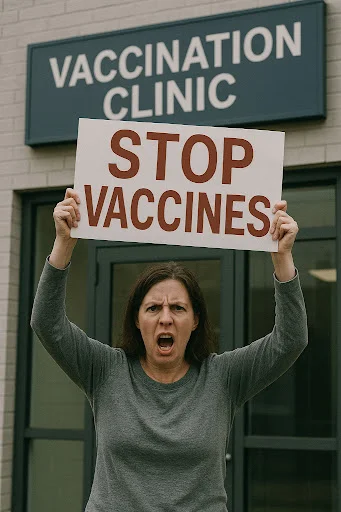There are moments — quiet, unbidden — when one pauses and wonders: how did we come to this? After centuries of inquiry, of minds that charted the unseen and hands that steadied the fevered, we now find ourselves in a peculiar and disquieting place. A place where truth is not refuted for want of evidence, but rejected for daring to inconvenience belief. The antivaxx movement is a malicious rejection of education — not a lapse in understanding, but a deliberate estrangement from reason.
It perplexes, not for its novelty, but for its brazenness. This is not the soft silence of the uninformed; it is the clamour of the wilfully blind, adorned in the rhetoric of liberty and cloaked in a defiant performance of scepticism. Vaccines — the elegant product of scientific rigour and logistical triumph — are cast aside in favour of speculation, rumour, and the seductive pull of conspiratorial thinking.
To refuse a vaccine is not an emblem of critical thought. It is, more often, a retreat from responsibility — a quiet dismantling of the unspoken pact that links us to one another. The needle is not merely a shield for the self; it is a gesture towards the other, an acknowledgement that one’s health is not a solitary affair.
And therein lies the deeper rupture. What is forsaken is not only the counsel of physicians or the pages of peer-reviewed research, but the fragile architecture of trust itself. In the rejection of vaccines, we witness a more profound abandonment — of care, of coherence, of the long-held belief that knowledge should serve life and that, in times of uncertainty, it is not opinion but understanding that must guide us.


Comments
Post a Comment